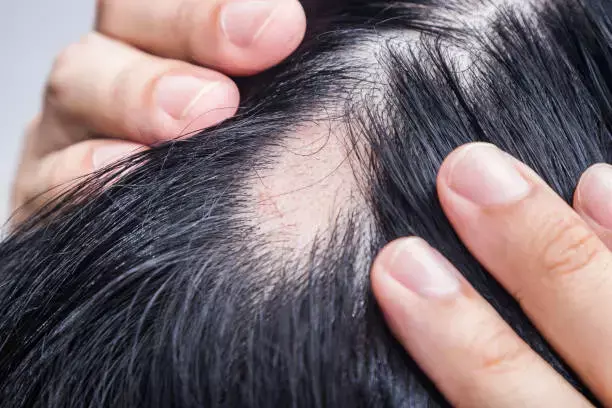- Home
- Medical news & Guidelines
- Anesthesiology
- Cardiology and CTVS
- Critical Care
- Dentistry
- Dermatology
- Diabetes and Endocrinology
- ENT
- Gastroenterology
- Medicine
- Nephrology
- Neurology
- Obstretics-Gynaecology
- Oncology
- Ophthalmology
- Orthopaedics
- Pediatrics-Neonatology
- Psychiatry
- Pulmonology
- Radiology
- Surgery
- Urology
- Laboratory Medicine
- Diet
- Nursing
- Paramedical
- Physiotherapy
- Health news
- Fact Check
- Bone Health Fact Check
- Brain Health Fact Check
- Cancer Related Fact Check
- Child Care Fact Check
- Dental and oral health fact check
- Diabetes and metabolic health fact check
- Diet and Nutrition Fact Check
- Eye and ENT Care Fact Check
- Fitness fact check
- Gut health fact check
- Heart health fact check
- Kidney health fact check
- Medical education fact check
- Men's health fact check
- Respiratory fact check
- Skin and hair care fact check
- Vaccine and Immunization fact check
- Women's health fact check
- AYUSH
- State News
- Andaman and Nicobar Islands
- Andhra Pradesh
- Arunachal Pradesh
- Assam
- Bihar
- Chandigarh
- Chattisgarh
- Dadra and Nagar Haveli
- Daman and Diu
- Delhi
- Goa
- Gujarat
- Haryana
- Himachal Pradesh
- Jammu & Kashmir
- Jharkhand
- Karnataka
- Kerala
- Ladakh
- Lakshadweep
- Madhya Pradesh
- Maharashtra
- Manipur
- Meghalaya
- Mizoram
- Nagaland
- Odisha
- Puducherry
- Punjab
- Rajasthan
- Sikkim
- Tamil Nadu
- Telangana
- Tripura
- Uttar Pradesh
- Uttrakhand
- West Bengal
- Medical Education
- Industry
Alopecia Areata tied to significantly increased risk of retinal disease: Study

Alopecia Areata is tied with a significantly increased risk of retinal disease, as per a recent study published in the Journal of the American Academy of Dermatology.
Alopecia areata occurs when the immune system attacks hair follicles and may be brought on by severe stress. The main symptom is hair loss. Treatment may address any underlying conditions and includes topical scalp medication. Growing evidence has revealed abnormalities in the retinal structures of patients with alopecia areata (AA). However, the relationship between AA and retinopathy remains unclear. A group of researchers conducted a study to investigate the association between AA and retinal diseases.
The study participants were recruited from the National Health Insurance Research Database in Taiwan. We included 9909 patients with AA and 99,090 matched controls to assess the risk of retinal diseases. A Cox regression model was used for all analyses.
The Results of the study are as follows:
Compared with the controls, patients with AA had an adjusted hazard ratio (aHR) of 3.10 (95% confidence interval [CI] 2.26-4.26) for retinal diseases. With respect to individual retinal diseases, Patients with AA had significantly higher risks of developing retinal detachment (aHR 3.98; 95% CI 2.00-7.95), retinal vascular occlusion (aHR 2.45; 95% CI 1.22-4.92), and retinopathy (aHR 3.24; 95% CI 2.19-4.81) than controls.
This was a retrospective cohort study. Meanwhile, almost all the participating individuals were residents of Taiwan; therefore, the validity of our findings in other demographics remains unclear.
Thus, the researchers concluded that patients with AA had a significantly higher risk of retinal disease than controls. Further studies are needed to clarify the pathophysiology of AA and retinal diseases.
Reference:
Association between alopecia areata and retinal diseases: A nationwide population-based cohort study Author links open overlay panel by Hui-ChuTing et al. published in the Journal of the American Academy of Dermatology.
https://doi.org/10.1016/j.jaad.2021.10.045
Dr. Shravani Dali has completed her BDS from Pravara institute of medical sciences, loni. Following which she extensively worked in the healthcare sector for 2+ years. She has been actively involved in writing blogs in field of health and wellness. Currently she is pursuing her Masters of public health-health administration from Tata institute of social sciences. She can be contacted at editorial@medicaldialogues.in.
Dr Kamal Kant Kohli-MBBS, DTCD- a chest specialist with more than 30 years of practice and a flair for writing clinical articles, Dr Kamal Kant Kohli joined Medical Dialogues as a Chief Editor of Medical News. Besides writing articles, as an editor, he proofreads and verifies all the medical content published on Medical Dialogues including those coming from journals, studies,medical conferences,guidelines etc. Email: drkohli@medicaldialogues.in. Contact no. 011-43720751


